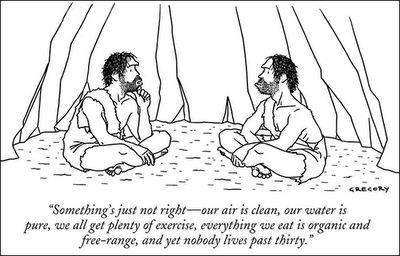Wealth, simply put, is the accumulation of valued outcomes.
Robert Heilbroner explains that:
Wealth is a fundamental concept in economics – indeed, perhaps the conceptual starting point for the discipline. Despite its centrality, however, the concept of wealth has never been a matter of general consensus.
As it turns out wealth is also central to the study of politics – defined as bargaining, negotiation and compromise in pursuit of valued outcomes (a definition from
The Honest Broker). In the study of wealth boundaries between the disciplines of economics and politics merge into shades of grey.
This post seeks to make three points related to wealth. First, wealth is more than money. Second, wealth can refer to outcomes in terms of both ends and means, and ultimately is a subjective concept. And third, it is important to distinguish the redistribution of wealth from the aggregate accumulation of wealth, though both are important, valued outcomes to policy making.
If wealth refers to “valued outcomes,” then what are “valued outcomes”?
The first thing most of us think of as wealth is money. Money is important because it can readily be exchanged for other things. We often use measures of income or economic activity as a descriptor of wealth, and such measures often work quite well, but they don’t tell us everything about what we value.
Efforts to measure “happiness” as wealth have become a sort of cottage industry, but have not gained much traction in displacing monetary-based measures of wealth.
In his 1958 classic,
Politics: Who Gets What, When, How, political scientist Harold Lasswell suggested eight different categories of valued outcomes: power, income, respect, well being, rectitude, skill, enlightenment and affection. (Lasswell actually used “wealth” but defined it as “income” – I use the latter here to avoid confusion.) While Lasswell’s work has been
much discussed for over half a century, including whether the eight value categories are comprehensive or not, the essential point here is that the outcomes that we value in society have many dimensions that go beyond money or that which can be expressed in money. (There are of course philosophers, political scientists and economists who would argue that everything has its price. I am not one of them.)
The presence of different (and often inconsistent) conceptions of what constitutes a valued outcome is of course where politics come in. Because people value different means and ends, we reconcile those different values through various forms of democratic political systems. Take energy as an example. Everyone agrees that the lights should stay on, but people disagree about what means should be used to provide energy – Fossil fuels? Nuclear? Renewables? – and how much they would prefer to pay for energy services. Such differences in perspective cross many of Lasswell’s value categories (maybe all of them). We reconcile those differences via politics, which is how we get done the business of society.

Money helps to illustrate another important aspect of wealth – a distinction between ends and means. Money is a means of achieving valued outcomes, because it is readily exchangeable. The lights come on in my house because I send the power company money every month. Even in that case, the electricity that comes out of my wall is but a means to some other end – in the case of producing this blog post using electricity, enlightenment. Of course, for some – Gordon Gekko comes to mind -- the accumulation of money is an end in itself. One person’s means might be another person’s ends.
Heilbroner explains that economists have debated whether wealth is an objective or subjective metric. Examples of objective measures of wealth cited by economists over many centuries include money (of course), gold (and other forms of capital) and human labor. The idea of an objective metric of wealth is one of the underlying bases for benefit-cost analysis, which is a prominent tool in the policy analyst’s toolbox.
While it would certainly make the tasks of policy analysis (and indeed politics) much easier if there were an objective metric of wealth, the position that I take, simply based on observation, is that wealth is a subjective concept. The fact is that people value different outcomes differently. That said, in an extremely wide range of situations, money does an admirable job serving s a proxy for wealth. A challenge for the analyst is to always remember that money does not measure everything that matters to people.

A final point to make in this post is that wealth can change in both relative and absolute ways. For instance, if you give me all the money in your bank account, I will have become more wealthy, and you less so, but the absolute wealth of society will not have changed. The distribution of wealth is also a valued outcome (and might also be considered in terms of power and rectitude) that different people view differently, and thus from a political perspective should be a part of any discussion of the absolute wealth of society. So while my interests and focus will be on the accumulation of wealth (as valued outcomes) across society, to address this subject properly necessarily requires considering issues of distribution in addition to aggregate accumulation.
With a working definition of "wealth" in hand, in a number of subsequent posts I will take up one of the central questions of both economics and the study of politics, drawing on insights from each field, to explore the following question: How do we as a global society become more wealthy?
 I liked Land of Promise, but I will offer two critiques. One is that while history provides an unbroken narrative structure to economics, it can mask changes that make one era incomparable with another. This is illustrated in the slide above from my presentation.
I liked Land of Promise, but I will offer two critiques. One is that while history provides an unbroken narrative structure to economics, it can mask changes that make one era incomparable with another. This is illustrated in the slide above from my presentation.



















